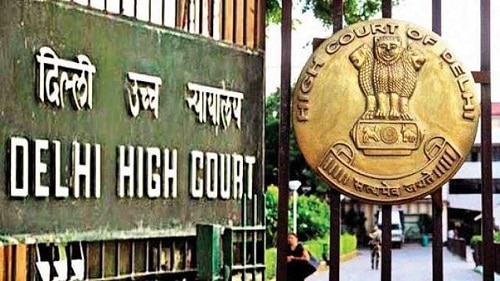Hon’ble High Courts have inherent power to decide one’s case, writ petition under the Articles 226 and 227 of Indian constitution and the provision of section 482 of Cr. PC. And besides these provisions and sections Hon’ble High Courts also have their own Original Pecuniary Jurisdiction or Appellate Jurisdiction and therefore, you need the Best High Court Lawyer to represent your case effectively. The High Court of a State hears cases relating to criminal law, family law, employment law, property law, and commercial law of that State. It also hears appeals against decisions made by lower courts.
For Bail under section 439 Cr.PC and for anticipatory bail under section 438 Cr.PC are entertained by the Hon’ble High Court when Hon’ble Session Court Decline or Reject the bail application then Hon’ble High can entertain the same application.
“High Court Cases in India: An Overview”
The High Courts in India are the highest judicial forums in each state. They have the power to hear appeals from the lower courts, as well as original jurisdiction in certain cases. The following are some of the key features of High Court cases in India:
- Jurisdiction: The jurisdiction of High Courts in India depends on the type of case. In general, High Courts have the power to hear appeals from the lower courts, as well as original jurisdiction in certain cases, such as habeas corpus, writs, and other public interest litigation.
- Appellate Jurisdiction: High Courts have the power to hear appeals from the lower courts, including civil and criminal cases. They have the power to reverse or affirm the decisions of the lower courts, as well as to modify or set aside their decisions.
- Original Jurisdiction: In certain cases, High Courts have original jurisdiction, meaning they hear cases directly, rather than on appeal. This includes cases related to habeas corpus, writs, and other public interest litigation.
- Writ Jurisdiction: High Courts have the power to issue writs, which are legal orders that direct public authorities to perform certain actions. Some of the most commonly used writs are habeas corpus, mandamus, prohibition, and quo warranto.
- Public Interest Litigation (PIL): High Courts have the power to hear public interest litigation (PIL) cases, which are cases that seek to enforce the public’s right to information, the protection of the environment, and other issues of public interest.
- Bench Strength: High Courts are comprised of multiple judges, known as “benches”. The number of judges on each bench depends on the size and complexity of the court, as well as the workload.
In conclusion, High Courts play a crucial role in the Indian judicial system. They are the highest judicial forums in each state and have the power to hear appeals, original jurisdiction, and writ jurisdiction, as well as to enforce the public’s right to information and protect the environment through public interest litigation.
Hon’ble High court have Exclusive Power in the State Judiciary to Quash any FIR on merit or on some other ground which Hon’ble Court Deem fit and proper and in the interest of Justice. Civil Writ Petition and Criminal Writ petition are also entertained by Hon’ble High court to give any certain relief by the petitioner. Do Remember any Revision in regards to any interlocutory order passes by Lower court are not maintainable in terms of section 397(2) Cr. PC and it is Hon’ble High court can exercise the power under section 482 Cr. PC and set aside the impugned interlocutory order if Hon’ble court deem it to be fit and proper.
In the Hon’ble High court, courts are hold by single bench and double bench and same are classified as per the case and jurisdiction.
“Specialist High Court Lawyers: An Overview”
High Court cases can be complex and challenging, which is why it is important to have a specialist High Court lawyer by your side. The following are some of the key features of specialist High Court lawyers:
- Expertise: Specialist High Court lawyers have a deep understanding of the laws and procedures involved in High Court cases. They have the knowledge and experience necessary to provide effective representation in these cases.
- Experience: Specialist High Court lawyers have extensive experience in handling High Court cases, and have a proven track record of success in these cases. They have the ability to navigate the complexities of the legal system and effectively advocate for their clients.
- Network of contacts: Specialist High Court lawyers have a wide network of contacts, including other lawyers, judges, and experts, which they can use to help build a strong case.
- Advocacy skills: Specialist High Court lawyers have excellent advocacy skills, including the ability to present evidence, argue their client’s case, and negotiate settlements. They are also experienced in cross-examination and can effectively challenge the testimony of witnesses.
- Understanding of the law: Specialist High Court lawyers have a deep understanding of the law and are up-to-date on the latest legal developments. They are able to provide their clients with accurate and up-to-date legal advice.
- Cost-effective: In many cases, hiring a specialist High Court lawyer can be more cost-effective than representing yourself or hiring a general practice lawyer. This is because specialist High Court lawyers have the experience and expertise necessary to resolve complex cases efficiently and effectively.
In conclusion, specialist High Court lawyers play a crucial role in the Indian judicial system. They have the expertise, experience, and advocacy skills necessary to provide effective representation in High Court cases. If you are involved in a High Court case, it is important to find a specialist High Court lawyer who can help you navigate the complexities of the legal system and achieve the best possible outcome for your case. The Delhi High Court is one of the most important and highly regarded judicial forums in India. To effectively navigate the complexities of Delhi High Court cases, it is important to work with a specialist and expert advocate.
Our Team of efficient High Court Lawyer(s) are cable enough to present the case before the competent bench of Hon’ble High Court to get the requisite relief. Century Law Firm has been appearing regularly before the Hon’ble Delhi High Court and High Courts of other States.
Frequently Asked Questions (FAQs) on High Court Cases
- What is a High Court case in India? A High Court case is a legal proceeding that is heard in one of the 25 High Courts in India. These cases may involve a wide range of civil and criminal disputes, including property disputes, commercial disputes, family law matters, and constitutional issues.
- What is the jurisdiction of a High Court? The jurisdiction of a High Court extends to a specific geographical region or territory, which is usually a state or a group of states in India. The High Court has the power to hear and decide cases that arise within its jurisdiction.
- What is the difference between a High Court and a lower court? A High Court is a superior court of record, while lower courts include district courts and other subordinate courts. High Courts have greater jurisdiction and powers than lower courts, and they hear appeals from lower courts.
- What is the process for filing a High Court case? To file a High Court case, you must prepare a petition outlining the facts of your case and the relief you are seeking. The petition must be filed with the appropriate High Court, along with the required fees and supporting documents. You will also need to serve a copy of the petition on the other party.
- How long does a High Court case take to be resolved? The time it takes to resolve a High Court case varies depending on the complexity of the case and the backlog of cases in the court. Some cases may be resolved within a few months, while others may take several years.
- Can a High Court decision be appealed? Yes, a decision of a High Court can be appealed to the Supreme Court of India, which is the highest court in the country. However, the appeal must be based on a point of law and cannot simply challenge the findings of fact in the original case.
- What is the role of a High Court lawyer? A High Court lawyer represents clients in legal proceedings before the High Court. They advise clients on legal matters, prepare legal documents and pleadings, and present arguments in court.
- What qualities should I look for in a High Court lawyer? When choosing a High Court lawyer, it is important to look for someone who has experience in handling cases similar to yours. They should also have excellent communication and negotiation skills, as well as a strong track record of success in the High Court.
- Can I represent myself in a High Court case? Yes, it is possible to represent yourself in a High Court case, but it is not recommended. High Court cases are complex and technical, and a lack of legal knowledge and experience can put you at a significant disadvantage. It is advisable to seek the services of a qualified High Court lawyer.
- Why should I choose Century Law Firm for my High Court case? Century Law Firm has a team of experienced High Court lawyers who have a track record of success in handling a wide range of complex legal disputes. Our lawyers are committed to providing effective and efficient legal representation to our clients, and we have a strong reputation for delivering results.
- What is the jurisdiction of the Delhi High Court? The Delhi High Court has jurisdiction over the National Capital Territory of Delhi.
- What types of cases does the Delhi High Court handle? The Delhi High Court handles a wide range of civil, criminal, and commercial cases, including intellectual property disputes, land disputes, labor and employment disputes, consumer disputes, and more.
- How do I file a case in the Delhi High Court? To file a case in the Delhi High Court, you need to prepare a petition stating the facts of your case, the legal provisions you are relying on, and the relief you are seeking. You also need to pay the appropriate court fees and submit the petition to the court either in person or through a lawyer.
- What is the process for appeal in the Delhi High Court? If you are unhappy with the decision of a lower court, you can file an appeal with the Delhi High Court. The appeal must be filed within the prescribed time limit and must state the grounds of appeal.
- What is the role of a lawyer in Delhi High Court cases? A lawyer can help you navigate the complex legal system and ensure that your rights are protected. They can advise you on the strengths and weaknesses of your case, draft and file the necessary legal documents, and represent you in court.
- How can I find the best lawyer for my Delhi High Court case? To find the best lawyer for your Delhi High Court case, look for someone who has experience handling cases similar to yours and who has a good track record of success. You can ask for referrals from friends and family, search online, or contact a reputable law firm like Century Law Firm.
- What is the time frame for resolution of cases in the Delhi High Court? The time frame for resolution of cases in the Delhi High Court can vary depending on the complexity of the case and the court’s workload. However, the court is committed to disposing of cases as quickly and efficiently as possible.



